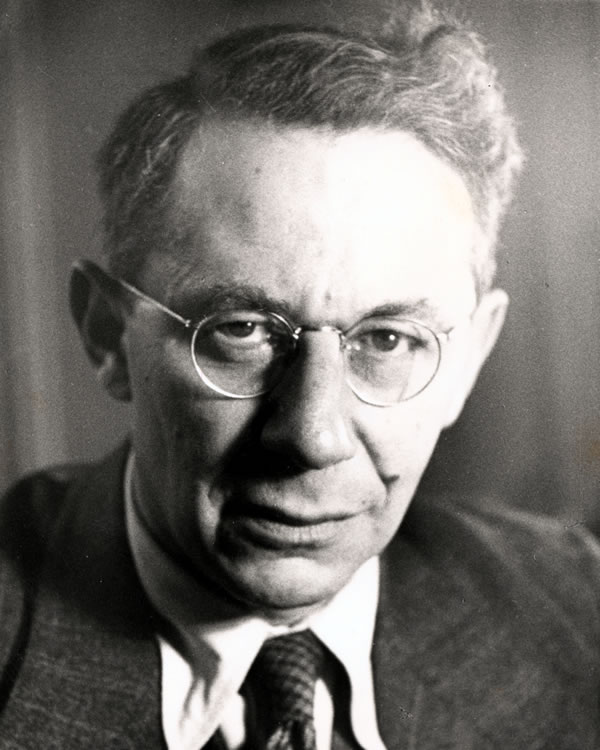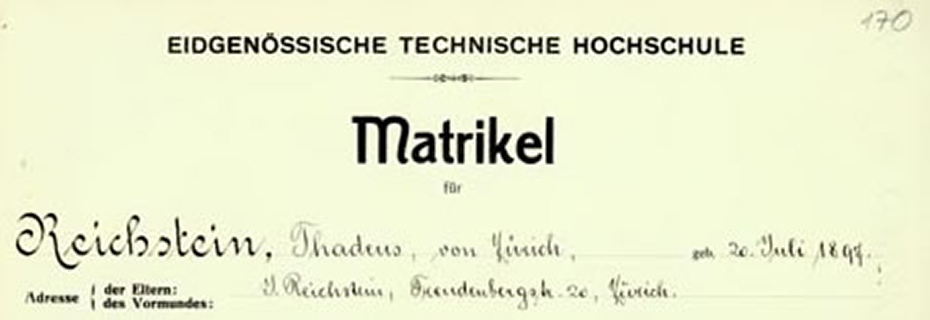Tadeus Reichstein (1897–1996)
Professor of chemistry

Tadeus Reichstein was born in Wloclawek (Poland) on 20 July 1897 and grew up in Zurich.
He studied at ETH Zurich's Department of Natural Sciences and obtained a doctorate under Hermann Staudinger in 1922.
After a stint as an assistant to Leopold Ruzicka, he was appointed as a professor of special inorganic and physiological chemistry at ETH Zurich in 1937 before being made a professor of pharmaceutical chemistry at the University of Basel in 1938.
Hormone research
He particularly made a great contribution to the isolation of steroids in the suprarenal cortex, especially cortisone, receiving the Nobel Prize for Medicine for this hormone research in 1950.
Extraction of vitamin C
In 1933 Reichstein found a way to obtain vitamin C from glucose in five steps. Only the second step, the conversion of sorbitol into sorbose, posed difficulties as the necessary oxidative fermentation could only be achieved with the aid of natural, wild bacteria. Fruit flies would eventually provide the answer.
Tadeus Reichstein died in Basel on 1 August 1996.
Manuscript
![A letter from Thadeus Reichstein to the Rector of the ETH Zurich "Sehr geehrter Herr Rektor Ich gestatte mir hiermit das Gesuch an Sie zu richten, [...] Verleihung der Doktorwürde der technischen Wissenschaften auf Grund beiliegender Promotionsarbeit. Ich erkläre [...] diese selbstständig ausgeführt zu haben. In der Auflage sind die in Paragraph 2 der Promotionsordnung geforderten Belege beigefügt. Hochachtungsvoll, Thadeus Reichstein"](/en/locations-and-media/platforms/short-portraits/reichstein-tadeus-1897-1996/_jcr_content/par/fullwidthimage/image.imageformat.1286.1515989245.png)
Holdings
The ETH Zurich University Archives contain letters by Tadeus Reichstein in various collections of personal papers and a biographical dossier with newspaper articles on his life and work. The Historical School Board Archive, which is also kept in the University Archives, provides information on Reichstein's work at ETH Zurich. The ETH Library's Image Archive owns a range of photographs of Reichstein and a televised interview in its portrait collection and the photo archive Comet. Tadeus Reichstein's dissertation and habilitation are kept in the library holdings.

Related links
external page Dissertation by Tadeus ReichsteinAll Nobel Prize laureates of ETH Zurich at a glance